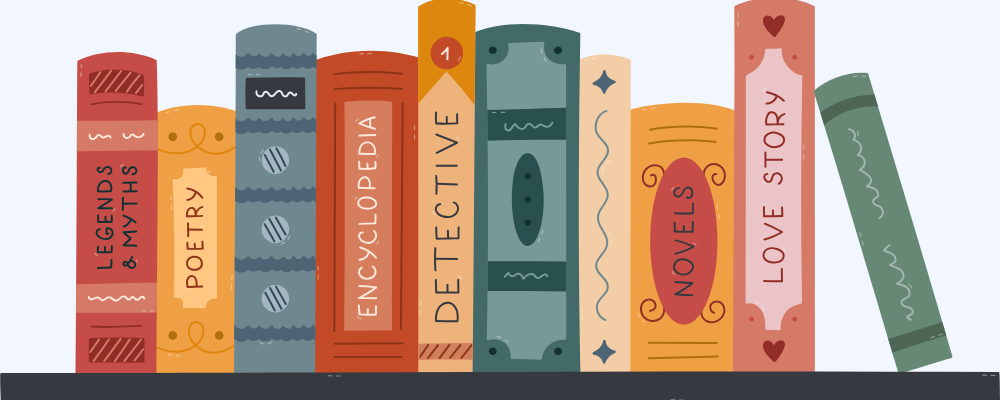Reconciliation didn’t end in 2015 with the release of the Truth and Reconciliation Commission’s final reports. The journey is very far from over.
Now more than ever, it’s time to revisit the Truth and Reconciliation Commission’s findings and calls to action with a publishing lens.
Below, we’re going in-depth into the Truth and Reconciliation Commission’s calls to action, how they apply to the book industry, and actions we can take to progress towards reconciliation.
For more on the Truth and Reconciliation Commission, check out our paired blog post on the Truth and Reconciliation Commission’s findings and what is meant by reconciliation.
Called to action
The Truth and Reconciliation Commission’s 94 calls to action don’t specifically address the publishing industry, but this doesn’t mean that they aren’t relevant for us.
The calls to action do relate to topics and institutions that have deep ties with the Canadian book industry: language and culture, commemoration, education, archives and museums, media, and businesses. Considered together, the calls to action for these sectors also apply to our industry and should shape the way that we do our work going forward.
As we explore the calls to action, their meaning, and some resources available to support the reconciliation process, consider: How do these calls apply to the book industry, or to me specifically? What actions can we, individually and collectively, take to move towards reconciliation?
Getting books to readers
It’s a long road towards reconciliation but thankfully we can start taking steps by doing what we do best: getting books into the hands of readers.
The calls to action guide us towards two natural areas of focus: educational books and recreational books.
Books for students and teachers
The publication and distribution of educational resources already make up a large part of the book industry. These educational resources aren’t made in a vacuum. They’re dependant on the curriculums laid out by governing bodies and as curriculums change, so do the books we make available. In the calls to action, there is a section related to the education sector which calls for changes to school curriculums, like in call to action 62:
62. i. We call upon the federal, provincial, and territorial governments, in consultation and collaboration with Survivors, Aboriginal peoples, and educators, to make age-appropriate curriculum on residential schools, Treaties, and Aboriginal peoples’ historical and contemporary contributions to Canada a mandatory education requirement for Kindergarten to Grade Twelve students.
This call for change isn’t only for educational resources for Kindergarten to Grade Twelve. Call to action 16 asks post-secondary institutions to create programs in Aboriginal languages and call to action 86 also asks Canadian journalism programs and media schools to require education for all students on the history of Aboriginal peoples.
Together, these calls to action ask us to think broadly about the content of books we are publishing and distributing to support the Canadian education system, from Kindergarten to post-secondary, towards resources that help teachers and students in the reconciliation process.
Books for casual readers
As an industry, we also cater to another important group of readers — casual ones.
Within the calls to action, residential schools and reconciliation emerge as two subject matters to focus on.
The importance of commemoration, education, and discussion about residential schools is found throughout the calls to action. The section on commemoration, specifically calls to action 79 through 82, outline in depth the need to remember and commemorate the history of residential schools. Elsewhere, call to action 69, for archives, declares:
69. i. We call upon Library and Archives Canada to fully adopt and implement the United Nations Declaration on the Rights of Indigenous Peoples and the United Nations Joinet-Orentlicher Principles, as related to Aboriginal peoples’ inalienable right to know the truth about what happened and why, with regard to human rights violations committed against them in the residential schools.
This call doesn’t just apply to archives. It is also our responsibility to support Indigenous authors who write about these truths.
But the calls to action aren’t calling us to only remember residential schools. Reconciliation is more than just that, although exposing the residential school system plays an important part.
The calls to action also ask us to support projects on the theme of reconciliation more broadly, like in call to action 68, meant for museums, or in call to action 83:
83. We call upon the Canada Council for the Arts to establish, as a funding priority, a strategy for Indigenous and non-Indigenous artists to undertake collaborative projects and produce works that contribute to the reconciliation process.
Thinking of our own industry, what strategies can we create to connect Indigenous and non-Indigenous writers and readers to support reconciliation?
This could take many forms, like:
working with local programs and organizations, such as Nikibii Dawadinna Giigwag, Canadian Roots Exchange, or 4Rs Youth Movement;
promoting books by Indigenous authors through dedicated catalogues and book lists or hosting dedicated author events; and
reading from a decolonial reading list and sharing books by Indigenous authors within our own individual communities.
At BookNet Canada, we commit to using our access to industry data alongside research focused on books by Indigenous authors and in Indigenous languages, to both support these works and to make this information available in order to hold ourselves and our industry accountable.
Championing Aboriginal languages and cultures
Making books available also means supporting work in Indigenous languages. The calls to action make the importance of preserving Aboriginal languages very clear, like in call to action 14:
14. i. Aboriginal languages are a fundamental and valued element of Canadian culture and society, and there is an urgency to preserve them.
Elsewhere, the calls to action remind us that it is Indigenous people and communities who are the best leaders for preserving, revitalizing, and strengthening Aboriginal languages and cultures. This doesn’t excuse non-Indigenous members of our industry from taking action, but it means these actions should be supporting/following Indigenous-led initiatives.
In their guidelines for media, the importance of celebrating the diversity of Indigenous languages and cultures is also at the forefront in call to action 84:
84. i. We call upon the federal government to restore and increase funding to the CBC/Radio-Canada, to enable Canada’s national public broadcaster to support reconciliation, and be properly reflective of the diverse cultures, languages, and perspectives of Aboriginal peoples, including, but not limited to increasing Aboriginal programming, including Aboriginal-language speakers.
As another player in the world of media, we should all set these as a part of our goals by supporting Indigenous languages and cultures throughout the book industry supply chain and offering our platforms as a space where they can thrive.
An important component to this is funding. There are many Indigenous- and non-Indigenous-led organizations that offer grants for Indigenous-led arts initiatives, including:
Another part of this work is also done by charities who support survivors of residential schools, their families, and communities, like:
At BookNet Canada, we commit to supporting Indigenous-led organizations through our Equity program and charitable donations, and to continue our advocacy for metadata standards to better reflect the diversity of Indigenous languages and cultures.
Building and strengthening relationships
Above all else, non-Indigenous people cannot progress towards reconciliation without building and strengthening respectful relationships with Indigenous peoples and communities.
These relationships exist both inside and outside our organizations and industry.
Outside of our industry, building and strengthening relationships also relates to the relationships we all have with First Nations communities whose, often unceded, land we call home.
Outside our organizations, the calls to action urge businesses to follow the United Nations Declaration on the Rights of Indigenous Peoples as a reconciliation framework, like in call to action 92:
92. i. Commit to meaningful consultation, building respectful relationships, and obtaining the free, prior, and informed consent of Indigenous peoples before proceeding with economic development projects.
For non-Indigenous members of the book industry, this can encompass practices of author care for Indigenous authors; collaborative work between Indigenous- and non-Indigenous-led industry organizations, like the Canadian Federation of Libraries Association’s Indigenous Matters Committee or the Indigenous Editors Association; as well as other relationships built with Indigenous communities during the course of our work.
Within our organizations, these relationships are grounded in hiring practices. In both calls to action 92, for businesses, and 84, for media, we are tasked with:
84. Increasing equitable access for Aboriginal peoples to jobs, leadership positions, and professional development opportunities within the organization.
What hiring practices and professional development opportunities exist in our organizations? How can they improve?
There are many resources available to support individuals and organizations that want to make changes, like:
At BookNet Canada, we commit to seeking opportunities to create and strengthen respectful relationships with our Indigenous peers and to continue supporting Indigenous-led publishers and retailers through our media channels.
Leaving ignorance behind
A final action everyone in the book industry, especially our non-Indigenous members, should take to progress towards reconciliation is to pursue education and training on the history of Aboriginal peoples.
This comes directly from call to action 92, meant for all Canadian businesses:
92. iii. Provide education for management and staff on the history of Aboriginal peoples, including the history and legacy of residential schools, the United Nations Declaration on the Rights of Indigenous Peoples, Treaties and Aboriginal rights, Indigenous law, and Aboriginal–Crown relations. This will require skills based training in intercultural competency, conflict resolution, human rights, and anti-racism.
There are a lot of resources available to help support this education, including:
First Nations University of Canada’s Certificate in Reconciliation Studies;
Settlers Take Action; and
At BookNet Canada, we commit to continuing our own education and to offering educational resources for others through our Tech Forum programming, webinars, blog posts, and podcast, that support our industry’s progress towards reconciliation.














Tips on providing appropriate keywords in your metadata.